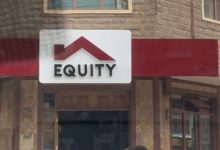African financial markets report widespread progress

According to a recent survey by Absa Group, Africa’s financial markets have expanded at the fastest pace since 2017 due to the overall recovery of economies bouncing back from global shocks.
Absa notes that there have been clear improvements across several African countries with scores rising for 23 countries (82%), which is the highest share since the index was first published in 2017.
In its eighth year, the Absa Africa Financial Markets Index evaluates countries’ financial development based on measures of market accessibility, openness and transparency. With support from the United Nations Economic Commission for Africa, coverage in the index has grown to 29 countries this year with the addition of Benin, encompassing approximately 80% of the population and gross domestic product of Africa.
“This is a welcome respite after several difficult years during which the continent faced first the challenges of the global Covid-19 pandemic, then higher domestic inflation and financing costs,” Charles Russon, Absa Group CEO says in the report.
“Debt restructuring in some African markets and worries about debt sustainability in many more have served to further interrupt Africa’s recovery.”
According to the report, most financial markets in Africa have weathered the storm of the recent global shocks. Many have bounced back over the past 12 months, as the previous tightening of global financial conditions has begun to unwind, supporting investment into emerging and frontier markets. Others, though, are still struggling. These factors contribute to a clear divergence in the performance of AFMI economies on financial market size and liquidity this year, with scores improving in 19 countries and falling in seven.
In terms of size, most countries saw their financial markets grow in the year to June 2024. About two-thirds (17 countries) increased their stock market capitalisation as a percentage of gross domestic product, while this share fell in one-third (nine countries). This excludes the Democratic Republic of Congo, Ethiopia and Madagascar, which do not have securities exchanges.
Across the continent, the report further notes that policy-makers, regulators and exchanges have been busy. New financial products continue to be introduced, like those focused on environmental, social and governance criteria or Islamic finance.
Places like Nigeria and Ethiopia are reforming foreign exchange markets. Sovereign and corporate sectors have been opened up to greater credit ratings scrutiny. There is a greater focus on encouraging a deeper use of pension funds.
More countries have also adopted globally recognised financial standards.
“While progress is not uniform across the entire continent, significant improvements have been made – and this is what matters”, Sihle Tuta, commercial director at global brokerage firm Exness,said.
“As the penetration of new financial products increases, especially now that Islamic finance is becoming widespread, investors and traders develop a taste for diversification that goes beyond swap-free accounts. This poses a challenge for financial service providers seeking expansion into African markets, as they will need to tailor their offerings to meet the increasingly sophisticated demands of a more knowledgeable audience”, Mr Tuta highlighted.


